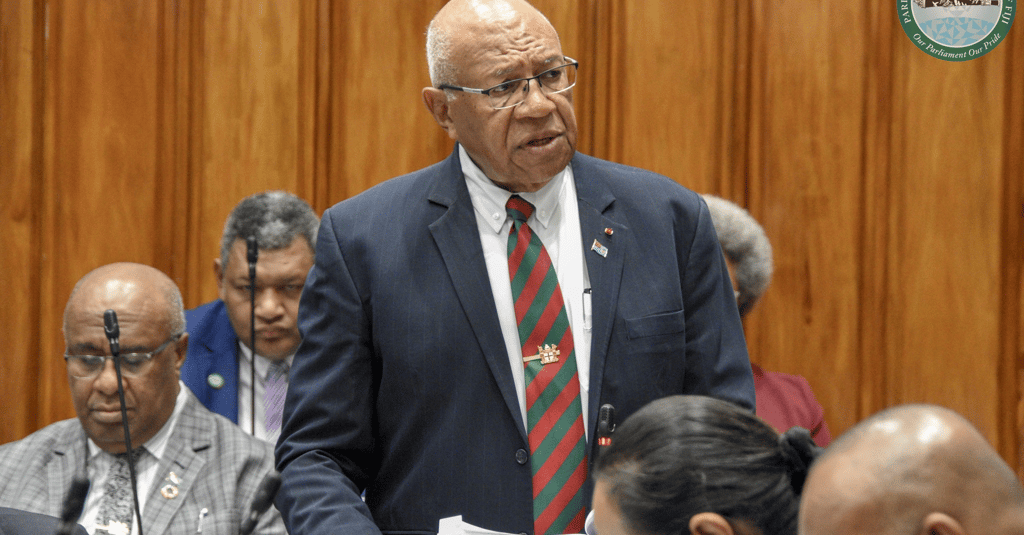National Carbon Strategy Roadmap to Drive Emission Reductions
FIJI NEWS


Fiji is taking decisive action in the fight against climate change with the unveiling of its National Carbon Strategy Roadmap, designed to reduce emissions and build a sustainable, low-carbon future.
The roadmap, which aligns with Fiji's climate commitments under the Paris Agreement, aims to leverage both market and non-market mechanisms to drive environmental and economic progress.
Prime Minister Sitiveni Rabuka, who also serves as the Minister for Climate Change, provided an update on the roadmap in a recent statement, outlining the government's approach to achieving its emission reduction goals.
The strategy is built on the principles of Article 6 of the Paris Agreement, which encourages collaborative, cooperative actions among countries and stakeholders to address climate change.
“Our National Carbon Strategy Roadmap is designed to ensure that Fiji not only meets its climate commitments but also leads by example in innovative, high-integrity solutions that benefit our people and the environment,” said Rabuka.
He emphasized that the roadmap will enable Fiji to connect with both market-based and non-market-based carbon mitigation strategies, ensuring equitable benefit-sharing and sustainable development.
Fiji’s energy sector, which already has a strong focus on renewables, plays a key role in the country's carbon reduction efforts.
PM Rabuka noted that 55 percent of the nation’s energy is supplied by non-fossil fuels, with 50 percent coming from hydropower and 5 percent from biomass and wind energy.
He says the five key pillars of action are enhancing market readiness through strategic actions, strengthening legal frameworks and governance structures, safeguarding community benefits and landowner rights and a lot of our landowners are coming up with their own suggestions in that area, increasing public awareness, participation and ownership and capacity and developing effective partnerships and scaling finance.
The Prime Minister highlighted the role of carbon markets in attracting additional financial flows into Fiji. Through carbon trading, Fiji can receive investments in exchange for a share in the emission reductions generated by these initiatives.
Rabuka also shared that Fiji has signed a preliminary agreement with Singapore, paving the way for companies to invest in low-carbon technologies in Fiji.
This collaboration is expected to help mitigate the costs of adopting new technologies and enhance the country’s green energy infrastructure.
This partnership, according to Rabuka, was formally acknowledged during the COP29 conference, signaling the international community’s support for Fiji's carbon reduction efforts.
During the session, Alvick Maharaj, an Opposition Member, raised concerns about Fiji’s long-term climate goals.
Maharaj asked if the country remains on track to become a zero-emission nation by 2050 and whether the roadmap includes initiatives to support landowners who already possess carbon stocks and wish to participate in carbon trading.
In response, PM Rabuka reassured the opposition that the government is committed to the 2050 goal and is actively encouraging landowners, particularly farmers, to contribute ideas and participate in the carbon market.
MP Premila Kumar questioned if there are any plans to build capacity so that the roadmap can be delivered.
PM Rabuka answered that there are plans and they have to contribute to the policies.